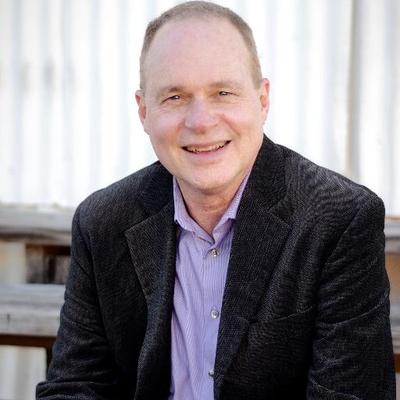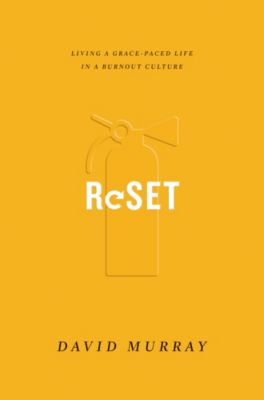
You may pride yourself in your great capacity to do kingdom work. But God designed every leader with healthy, human limitations.
By David Loveless
I was in my office doing final prep for the weekend services that would start in a few hours when I got a familiar pain. It felt like my chest was being squeezed. I took some deep breaths, told myself to relax, and surrendered the discomfort to the Lord. Later that night, as I was preaching, the pain returned—only worse.
Not wanting to alarm anyone, I kept speaking while slightly rubbing my chest and making my way over to a stool on the stage. Internally, I kept telling my body to behave—it just needed to press through. But as soon as the service ended, someone drove me to the hospital. And after several days, tests revealed the same results I’d heard every decade since my twenties: Your body’s saying you’re carrying too much.
Like a lot of ministry leaders, I had bought into idea that exhaustion is normal, to be expected, even admired in high achievers. I was proud of working hard for the most important cause on the planet. A lot of people were counting on me, and I had big goals for God. Looking back, I was acting like a spiritual Superman.
I had an arrogance of capacity.
Pride before the fall
What I couldn’t see was that the load I’d been carrying most of my life along with some unexamined motives, internal and external expectations, plus all the stressful ups and downs of 21st century ministry were slowly eroding important parts of me. Yes, I was praying, journaling, reading Scripture, and doing all I knew to cast my cares on Jesus like I taught everyone else. And, yes, I delegated responsibility to others and scheduled time off. Still, slowly, after decades of what I believed was the only way to do ministry, I became worn down.
God created each of us, even ministry leaders, with human limitations. — @DavidLoveless2 Click To TweetBut in that state, I discovered the gospel really works and resurrection and restoration are real. And as a part of this restoration process, I learned how to gain what was most important to me without losing my soul.
My whole life, I had chased rest from continual striving but had only periodically experienced that rest. But in Christ, I finally found a sustainable rest.
“Are you tired? Worn out? Burned out on religion? Come to me. Get away with me and you’ll recover your life. I’ll show you how to take a real rest. Walk with me and work with me—watch how I do it. Learn the unforced rhythms of grace. I won’t lay anything heavy or ill-fitting on you. Keep company with me and you’ll learn to live freely and lightly” (Matt 11:28-30, MSG).
I’m learning to consistently live in those unforced rhythms of grace. These days, even though I probably carry more responsibility than I ever have, I carry all of it with a freedom and lightness I never knew before.
Embracing our finitude
Here’s a key I learned: I’m fragile. When I get out of healthy rhythms, I’m dangerous. I make unwise decisions; I over-function; I cross boundaries; I fail to be present with people; I become anxious; I rush. That’s probably true for you too. I didn’t want to hear it, but I finally got the message: God created each of us, even ministry leaders, with human limitations. I spent my life believing I could be strong enough to “hold it together” no matter how challenging the circumstance.
Most of the leaders I coach are great at working like Jesus (self-sacrifice) but find it hard to give themselves permission to rest like Jesus (self-care). — @DavidLoveless2 Click To TweetJesus was arguably the most productive person ever in terms of what he accomplished in His brief lifetime. But part of His productivity came from practicing replenishing rhythms. He didn’t have an arrogance of capacity, yet He was to be the Savior of the world. He lived within His human limitations, in the midst of His divine calling.
Countless times, after teaching and healing all day, we see Jesus saying: “That’s enough. Let’s get in the boat.” Or He’d say, “I’m heading up the mountains alone.” With plenty left to do, Jesus regularly and humbly honored His human limitations.
Most of the leaders I coach are great at working like Jesus (self-sacrifice) but find it hard to give themselves permission to rest like Jesus (self-care).
Here are some replenishing rhythms that help make the weight of responsibilities more humanly doable.
1. Share the gift you’ve been given and then surrender the outcome to God
Several times a week I remind myself that whatever the moment or context, my main responsibility is to offer my gift and let that be enough. We have far less control over circumstances and people than we think. In the past, I looked at my calendar and thought it was all up to me.
Now I’ve found self-importance and belief that it’s my job to get people from one place to another is a kind of hidden arrogance. If you constantly rely on yourself to do more and try harder, you can expect your heart, soul, and body to declare a mutiny at some point.
If you constantly rely on yourself to do more and try harder, you can expect your heart, soul, and body to declare a mutiny at some point. — @DavidLoveless2 Click To TweetYes, you have an important role to play and gift to give, but even Jesus depended on the Father to accomplish His work. We must learn to be responsible without taking all the responsibility. Take a weekly pause to reflect and identify where you’re feeling unhealthy stress showing up in your body or emotions.
2. Practice stillness
I’m convinced one of the least practiced scriptures is “Be still, and know that I am God” (Psalm 46:10, NIV). Like a lot of leaders, I’ve been addicted to noise, words, people, and performing my spiritual disciplines while ignoring sitting in the stillness with God. I’m learning to sit for 15-20 minutes, several times a week—not reading scripture, praying, or journaling. Quieting the incessant chatter in my mind has led to more rest in the deepest part of my soul.
The stiller I get, the clearer things become.
As Dallas Willard once said: “You must ruthlessly eliminate hurry from your life, for hurry is the great enemy of spiritual life in our world today.”
3. Commit to a clear “finish line ” for each day, week, and year
So much of ministry can appear to have no official beginning or ending. Some of us don’t even have a permanent office. I assigned a specific moment to define the end of my work, which signals the start of rest.
I cross my daily finish line at 6:30 p.m. I leave screenland, enjoy replenishing activities, and don’t work or think about it until 8:00 a.m. the next morning, when I cross my starting line for the day. My weekly finish line is Friday at noon. I leave screenland, enjoy replenishing activities, and don’t work or think about it until early Sunday morning, when I cross my starting line for the week. I do the same thing when I start my annual vacation.
You may need to enlist your family and key co-workers to help you achieve this. But when you cross your finish line, say out loud the same thing God said at the end of each of His workdays: “This is good. It’s enough for today.” Create asmall ritual that makes it official for you. Maybe, listen for the sound of your office door closing at work or your car door shutting when you get home.
I prided myself in my great capacity to do kingdom work. And this arrogance contributed to much ruin and pain. I’m learning to accept and even appreciate how God has designed every leader with healthy, human limitations. And that includes me.

David Loveless
David is a leadership coach, pastor to pastors, and has been a strategic consultant to churches in over 50 countries. He’s the author of: Nothing to Prove and Church Wounds. He is currently serving as Executive Director of Campuses & Leadership Development at First Baptist Church Orlando.









